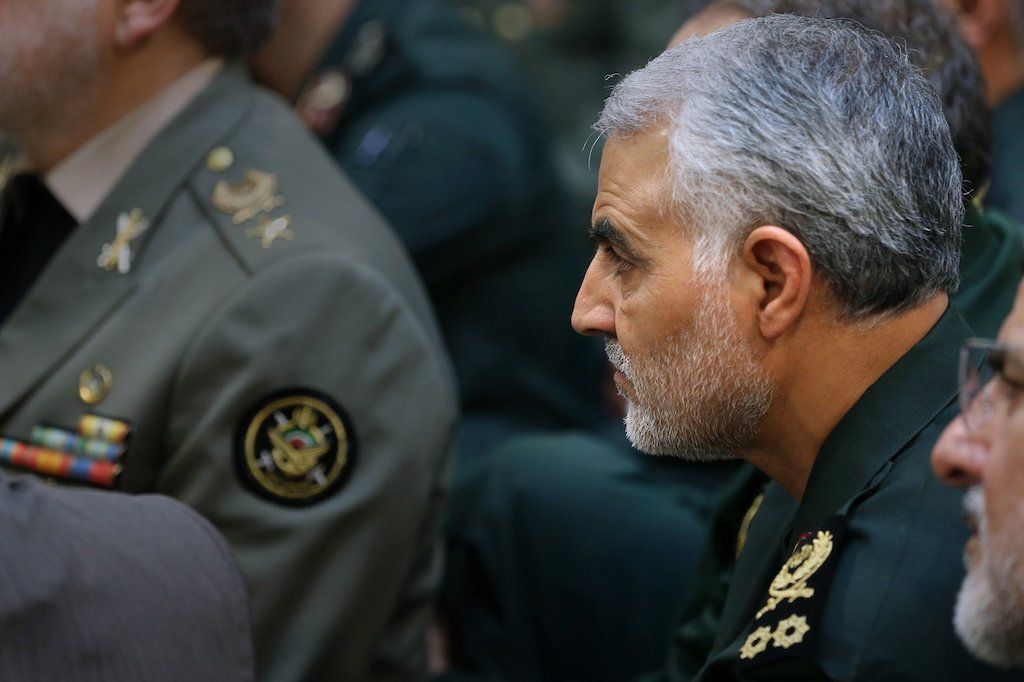TEL AVIV, Dec 31 (Reuters) –Iran could use its growing clout in Iraq to turn it into a springboard for attacks against Israel, the chief of Israeli military intelligence said on Monday.
Israel sees the spread of Tehran’s influence in the region as a growing threat, and has carried out scores of air strikes in civil war-torn Syria against suspected military deployments and arms deliveries by Iranian forces supporting Damascus.
Iraq, which does not share a border with Israel, is technically its enemy but was last an open threat in the 1991 Gulf War. Since a U.S.-led invasion in 2003 toppled Iraqi dictator Saddam Hussein, a Sunni Muslim, Israel has worried that Iraq’s Shi’ite majority could tilt towards Iran.
“Iraq is under growing influence of the (covert Iranian foreign operations unit) Qods Force and Iran,” military intelligence chief Major-General Tamir Hayman told a conference in Tel Aviv.

With U.S. President Donald Trump disengaging from the region, Hayman said, the Iranians may “see Iraq as a convenient theatre for entrenchment, similar to what they did in Syria, and to use it as a platform for a force build-up that could also threaten the State of Israel”.
Iraq’s prime minister said on Sunday that security officials from Baghdad had met Syrian President Bashar al-Assad in Damascus, and hinted at a bigger Iraqi role fighting Islamic State militants as U.S. troops withdraw.
Citing Iranian, Iraqi and Western sources, Reuters reported in August that Iran had transferred short-range ballistic missiles to Shi’ite allies in Iraq. Baghdad denied the findings.
The following week, Israel said it might attack such sites in Iraq, effectively expanding a campaign now focused on Syria.
Hayman predicted 2019 would bring “significant change” to Syria, where Assad has beaten back rebels with the help of Russia, Iran and Lebanese Hezbollah reinforcements, and where Trump this month ordered a pullout of U.S. troops.

“This presence of Iran, with Syria’s return to stabilization under a Russian umbrella, is something we are watching closely,” he said.
Israel has also been monitoring Iranian conduct since Trump quit the 2015 nuclear deal with Tehran in May and reimposed U.S. sanctions. The deal placed caps on nuclear projects with bomb-making potential, though Iran denied having such designs. Trump, with Israeli support, deemed the caps insufficient.
“We assess that Iran will strive to stay within the deal but will do everything in order to find ways of circumventing the American sanctions,” Hayman said.
(Writing by Dan Williams, Editing by William Maclean and Kevin Liffey)

